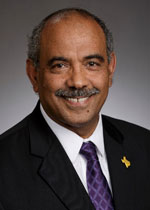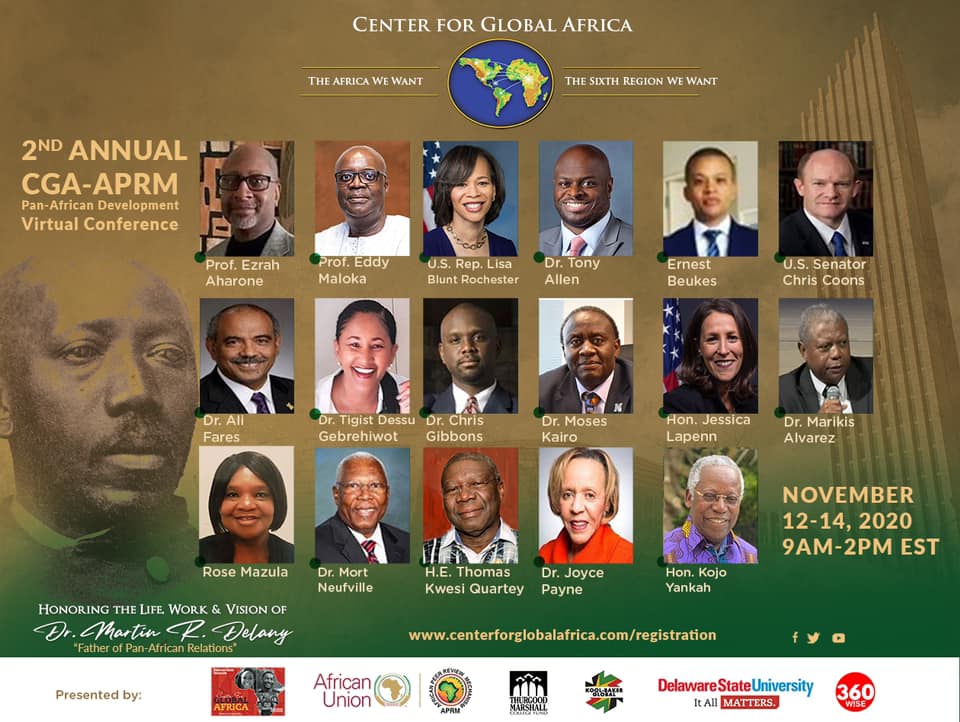By Kerry Laird
November 23 – Prairie View A&M University (PVAMU) Endowed Professor of Water Security Ali Fares, Ph.D., spoke on the use of precision agriculture technology at the Center for Global Africa-African Peer Review Mechanism Pan- African Development Conference this month.
The event was sponsored by Delaware State University.
Showcasing the theme “Creating the Africa We Want, Creating the Sixth Region We Want,” the conference covered critical issues related to water, agriculture, and economic productivity to address the continent’s growing concerns. The continent is expected to increase its population to 2.4 billion people by 2050.
“Agriculture is the backbone of most African countries and employs the majority of its populations,” Fares said. “Food, water, and energy are needed for this growing population. Farm productivity must accelerate at a faster rate than the global average to avoid continued mass hunger.”
Serving as a panelist for the conference’s “Innovations to Strengthen Africa’s Agricultural Value Chains” session, Fares, a fellow of the American Society of Agronomy, focused on the Bold Transformations 2025 strategic initiative that HBCU Land Grant Institutions like PVAMU has undertaken to support the needs of underserved communities. Precision agriculture is one way the PVAMU College of Agriculture and Human Sciences has utilized advanced technology to offer enhanced agricultural practices, both locally and globally.
“Despite efforts to improve agriculture productivity, crop yields of most crops are still lower than their potentials,” said Fares. “The agricultural sector found refuge in precision agriculture through the use of smart and innovative technologies and management approaches that optimize production and minimize losses.”
Normalized difference vegetation index, a key precision agriculture benefit discussed by Fares, uses infrared data to help farmers more easily determine vegetation reflectance to differentiate between “stressed” and “healthy” leaves.
The index can help farmers identify key inhibitors of growth — such as water stress, insect infestation, hail damage, and soil quality — to optimize crop yield and improve future harvest opportunities.
With many African citizens facing mass hunger and widespread crop failure, some project the continent’s food import costs to soar to $110 billion by 2025. Fares discussed the common ground shared between U.S. limited-resource farmers and their small-farm African counterparts, stating the possibilities for collaborations are abundant.
“One of our goals is to determine the appropriate production management for the major crops in the U.S. and Africa,” said Fares. “We can develop the capacity to address some of the significant agricultural production challenges such as crop stresses…and train students and enrich agricultural curricula with precision agriculture in 1890 and African universities.
In addition, Fares said agricultural systems using precision agriculture grow high-quality produce that is economically viable and environmentally acceptable.
“We need to bring technology back to the small farms with limited resources,” he said.
Land grant universities are helping to lead the way in agricultural research and education close to home and worldwide. Each year, land grant Institutions contribute approximately $4.4 billion to local communities. Bold Transformations 2025, which was developed by the agricultural directors of the 1890
Land Grant Universities, seeks to extend that research and education on a global scale.
For more information on this article contact:
 Ali Fares, Ph.D.
Ali Fares, Ph.D.
Endowed Professor
alfares@pvamu.edu
(936) 261-5095

